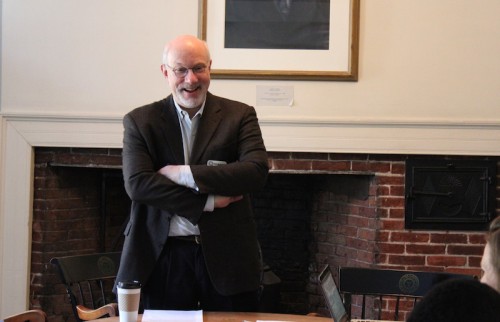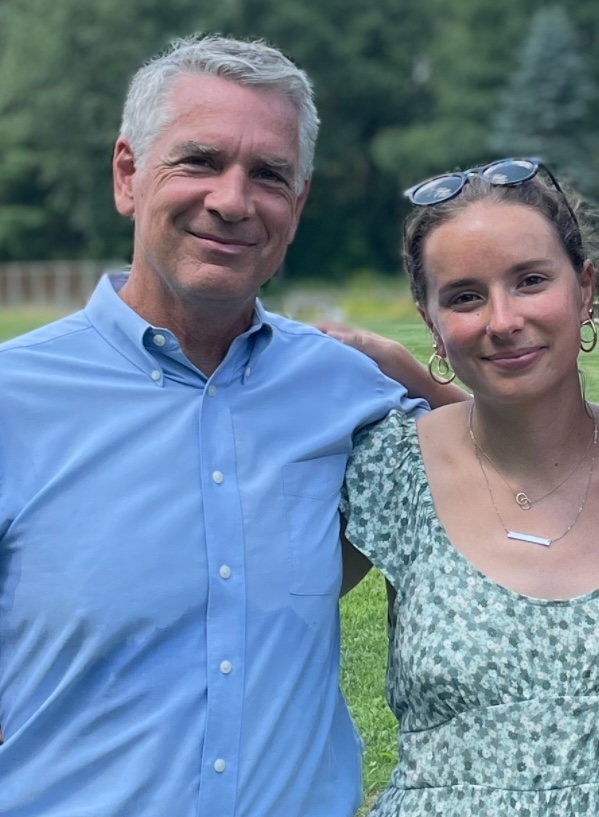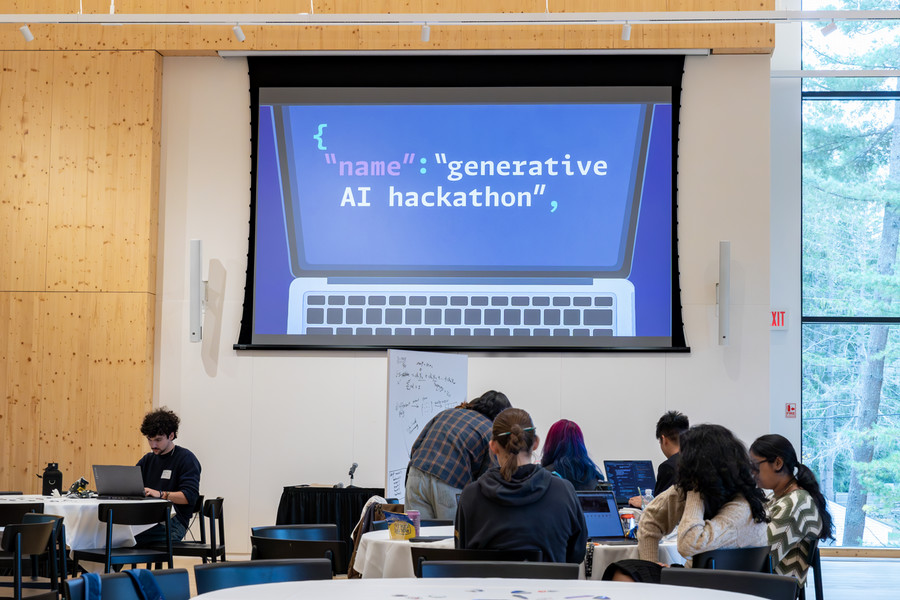Prouty ’80 MLB’s, Head Lawyer, Offers Negotiation Workshop
By Rebecca Goldfine
Although few students will ever get the chance to hash out $200 million multiyear contracts for the best baseball players in the world, they could still learn a few negotiating tips from the guy who does it for a living.
David Prouty ’80, general counsel for the Major League Baseball Players Association, was on campus last week to give a talk on “power, money and how collective bargaining and players’ interests continue to shape the game of baseball.” While he was here, he also offered an afternoon negotiation workshop for 15 students.
“Negotiation transcends whatever particular thing you’re working out,” Prouty said. (He acknowledged in particular that the figures he works with are “insane and absurd, I know.”) “The ability to articulate your position and reach a compromise with someone who comes from a different place is always helpful. That’s what life’s all about.”
Prouty told the students that when he and his team negotiate a contract for a player, they gather everything they can find out about the athlete, such as recent playing history and salary. They also study the market for comparable players. “So when you go in you can argue articulately for your side,” he said. “What you have to think about is what you want to get and how to explain to your client (whether it’s management or the player), ‘This is why I got you a good deal’.”
At the workshop in Massachusetts Hall, Sherry Mason, associate director of Career Planning, gave each student a gray or white folder. Inside these folders, depending on the color, was information about either a fictional sports player who wanted to be signed up, or info on a fictional team that wanted to sign up the player. Neither side could see what the other side was willing to settle for, or the facts behind their position.
After studying their packets to “see what bargaining chips they had,” the students were paired up for 20 minutes to reach a settlement. “We’ll come back and see who got deals, what their terms were and who got the best deal for the client — but also what pair got the best deal for everyone,” Mason said.
The student pairs came up with surprisingly different contracts offering a range of possible salaries, benefits and conditions. All but one had reached a deal. Mason said she helped facilitate the negotiation lesson to teach students that they’ll rarely encounter yes or no situations. “Oftentimes, the conversation is more nuanced,” she said.
Prouty on ‘Inside Baseball’
Before he worked for the MLB Players Association, Prouty was a union lawyer for 22 years, representing clothing, textile, hotel and restaurant workers. In 2008, Prouty joined the MLB players association as a staff lawyer. He became the MLB’s general counsel last year, its fourth since the union was founded in 1966.
At his evening talk on campus last week, Prouty said he did not initially want to work for rich baseball players, preferring to work on behalf of low-income factory workers. “Most people spend most of their time at work, so if you can improve their lives, it’s a very rewarding thing to do,” he said. But Prouty’s love for the game of baseball won him over. His daughter called his career transition a change from “representing people who make $10 an hour to people who make $10 a second.”
Prouty represents all the major league players, “the stars and not-so-big stars,” he said. Sometimes the mega-stars hire their own legal teams as well as use the union’s legal team. This gives Prouty the time to focus on players who are making the transition from the minor leagues, where they’ve been earning modest salaries, to the big league.
While the MLB players association is a small union made up of well-to-do members, it is an important one, Prouty said. “The thing about the baseball players union is that it’s a historically important union for changing sports.” The MLBPA’s first union contract was signed in 1970, raising salaries for players, establishing pensions for them, and providing players with the right to arbitration to settle disputes.
Besides negotiating contracts for baseball players, Prouty works on many other issues, including negotiations about rule changes and workplace conditions. (For example, the union helps to ensure that bats are safe and outfield fences are padded.) A current issue has been figuring out how instant replay affects players. “It matters a lot to the players, their pay depends on their statistics,” Prouty said. On Jan. 16, the union said they’ll monitor the expanded use of instant replay this season before negotiating its use in future seasons. The MLBPA has also this year negotiated a new rule prohibiting injurious plate collisions, as well as increased penalties for taking performance-enhancing drugs.
At the end of his lecture, Prouty said that while he never envisioned himself returning to Bowdoin to talk about baseball, he couldn’t be happier to get the chance to discuss his favorite topics — baseball and, he joked, himself. “I never would have believed it,” he said. “That’s kind of what happens in life, things happen and things change.”
Reporting by Amanda Spiller ’17



